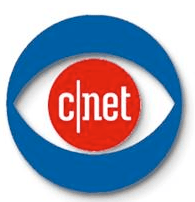Hardware journalism – the process of writing reviews, news, and opinion about gadgets – is a dark art. Early on – very early on – you have to sell your objectivity in order to gain access, and once you have access the manufacturers won’t stop calling you to gasp over their products and you can become an old curmudgeon like me. When done right – and it’s done right 99 percent of the time – it results in strong, interesting reading about various products. When done wrong it results in endless fawning coverage reminiscent of the worst of the niche sites.
So it’s a delicate balance and it seems to be working fine until your parent company sues one of the manufacturers you cover and the the whole facade comes crashing down.
I’m not going to pretend that the Dish/CNET debacle is a major news story. I can assure you that it isn’t and next week we’ll still be reading a CNET camera review from 2011 to decide which ultra zoom to buy (or, arguably, you’ll just end up on Amazon and read those reviews, which, I’d argue, are supplanting traditional gadget reviews). The whole thing stinks, but it doesn’t take a super sleuth to figure out what happened. It probably shook down like this: a CBS lawyer got wind of the award, saw the damage it would do to the case against Dish, and told the board. The board made a few calls, the editors cried, and the Hopper was pulled. News got out because someone who is close to a number of CNET and Dish folks tweeted about it. This would have been a quiet kill if hadn’t been for those pesky kids.
You guys sit there and say that all gadgets journalism is horribly corrupt. It isn’t. There are plenty of good people who just want to share cool stuff with you and many of those people are at CNET. It’s a steady job with good pay and it offers a nice platform. But this Dish fiasco is what happens when gadgets journalism goes really bad. This is what it’s like when it goes Jeff Gerstmann bad. Usually, gadgets journalism is just as it appears – someone sends a box, you open the box, try the device for a week or less, and send it back. You write a review based on your experience as a human being, with all your internal biases and peccadilloes, and submit it. A paycheck comes from the publication and you go on with your life. There’s no secret cabal behind the scenes planning to smear one product or the other due to ad dollars (until, you know, there is) and there’s no payola associated (unless it means losing a court case, apparently).
I spoke to someone who has been hanging around the CNET staffers and they’re mostly disgusted. They’re sitting at their desks wounded by this mess. They’re good people who have been embarrassed to the core by bad people.
I think this will end with a whimper. Dish will probably win the prize posthumously, someone will step down, and the great wheel of gadget reviewing will keep turning. It’s a sad situation, to be sure, but there are phones to review and monitors to test, and the solid, semi-unbiased reviews engine doesn’t stop because one lawyer decided to swing a dick. Or at least let’s hope not.
